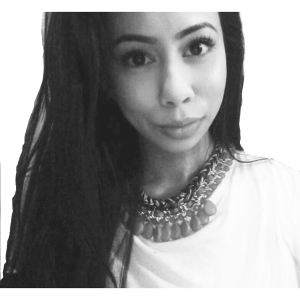USF junior and finance major Laise Popal sat at the head of the table on Thursday night, joined by 10 other members of USF’s new Muslim Student Association (MSA). Popal, the new president of the MSA, led an icebreaker discussion at the first meeting of the year during which members told the group something about themselves that only close friends would know. He listened attentively and cracked jokes between comments, and his laid-back style permeated through the room, which gave the meeting a calm and trusting tone as they covered topics ranging from ideas for club events to Palestinians being killed in Gaza. Popal’s tranquil demeanor provided no insight to his childhood path that was drastically altered at six months old, when the Afghan native and his family fled their country as the Russian army invaded it. Popal’s grandfather was an Afghan architect and thus a target of the Russians, who came to the family’s house only to find that the entire family had already fled to New York. They ended up in California a year later. Now Laise Popal has brought his Islamic roots to USF in hopes of creating a movement to spread awareness and clear misconceptions about the culture he was raised in and the faith he lives by.
“I want to bring all Muslims and non-Muslims together,” said Popal, who is fluent in Farsi. “It doesn’t matter if you’re Muslim or not, it’s [MSA] all about just learning about the faith.” Popal’s objective is being fulfilled in the small sample of MSA members at the meeting, with three being non-Muslims.
MSA member Shelley Saini, an American-born non-Muslim whose family is from India, is an example of the MSA’s effort to incorporate people of all faiths. “Indians and Muslims are not supposed to get along,” she said. Saini said that in recent years the MSA has had a bad image of being very religious, self-oriented, and not open-minded. Now Saini says the group is committed to changing that reputation.
USF sophomore, East African native, MSA member, and non-Muslim Seghel Yohannes said being an MSA member has been one of the best educational experiences of her life. “I originally joined to support my friends but then I realized I was part of something bigger,” said Yohannes, who does not practice religion but was raised Roman Catholic. “I want to dispel myths about the Muslim faith,” she said. Yohannes said she didn’t know anything about Islam until she became friends with USF senior Amro Shukri. Shukri’s young life is a microcosm of recent Middle Eastern politics.
Shukri was born in Saudi Arabia and later earned a scholarship and studied in Lebanon in 2006, until the Israeli Army invaded Lebanon. With Lebanese airports destroyed, Shukri had to escape through Syria to get back to Saudi Arabia. When Shukri eventually returned to Lebanon he found himself trapped in a civil war.
“There were bombings every few weeks and schools would get shut down,” he said. Shukri had to convince his family that coming to the United States was the best option for him, a tough task considering the American government’s poor image in the Middle East because of its support for Israel. “I had to convince them that San Francisco was very open-minded,” he said. “Every Saudi is born Muslim. I was born where everything in society is based on Islam. There are no different opinions. Here we have different opinions.”
Now at USF and with his family still in Saudi Arabia, Shukri is a USF senior and marketing major who wants to get his Ph.D. in architecture. He feels an obligation to spread truth about his faith. “I want to give a clear picture of what Islam is,” he said. “People still don’t have the full picture.” The opinion of the MSA is that the American media helps portray Islam as a violent faith. “They put the ‘error’ in ‘terrorism,’” said Popal when asked about the role U.S. media plays in linking Islam to extremism.
The MSA is in the process of planning its first event, Mela, on Feb. 27, in McLaren Hall where they will try to shed light on a “carnival of injustices” taking place around the world.
One of these injustices spoken of is the Palestinian-Israeli conflict. “There’s been a holocaust going on for 60 years,” said Shukri. “I know it’s going to continue until there is a breakthrough and people wake up.”
“I don’t know what’s going on at this school,” said Popal, on the lack of student activism on USF’s campus. “We need people to get into extra curricular activities and find something they care about.”
Being at a Jesuit school has not presented a problem for Popal and Muslim members of the MSA, who continue to practice their faith and are trying to set up weekly carpools to mosques in the area for all USF Muslims, regardless of whether or not they are in the MSA. They also expressed interest in putting on an event for interfaith dialogue. “I don’t feel any conflict with the school. I actually thought it would be more conservative,” said Shukri. The Muslim Student Association will continue to meet Thursdays at 6 p.m. in UC 417. All students are invited to attend.
 Sabrina Arsalane is a freshman in international studies major.
Sabrina Arsalane is a freshman in international studies major.